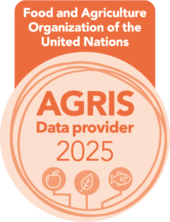Inteligencia Artificial - Chatgpt: un estudio bibliométrico y su aplicación en el caso de Gases de Efecto Invernadero
DOI:
https://doi.org/10.57188/manglar.2024.015Resumo
La aparición de la Inteligencia Artificial (IA) ha potenciado la interacción del ser humano con los sistemas informáticos, que van desde lo cotidiano hasta la investigación aplicada. ChatGPT utiliza el modelo de lenguaje Generative Pre-trained Transformer (GPT) de OpenAI, que permite realizar tareas específicas y responder preguntas. En la actualidad se viene explorando la aplicación de este modelo de lenguaje en distintas áreas de investigación tales como educación, salud, etc. Este estudio busca caracterizar la bibliometría de “ChatGPT” y analizar su posible aplicación en la revisión de literatura sobre gases de efecto invernadero. Hasta el 17 de enero de 2024, se han registrado 4 288 documentos científicos que mencionan a la IA, siendo Estados Unidos, el país con mayor aporte de documentos. Al consultar sobre ¿Cuáles son las principales aplicaciones en que ChatGPT revolucionará la búsqueda sobre gases de efecto invernadero en el mundo? Las respuestas fueron: acceso a información actualizada, análisis y modelado, divulgación científica, asesoramiento y recomendaciones; y educación y concientización. ChatGPT proporciona respuestas útiles y relevantes, sin embargo, no fundamenta sus respuestas. Por esta razón, la sustentación técnica y científica sigue siendo responsabilidad del investigador, dado que esta Inteligencia Artificial complementa el juicio humano, no la reemplaza.
Downloads
Referências
Ali, M. J., & Djalilian, A. (2023). Readership Awareness Series - Paper 4: Chatbots and ChatGPT - Ethical Considerations in Scientific Publications. Seminars In Ophthalmology, 38(5), 403–404. https://doi.org/10.1080/08820538.2023.2193444
Alser, M., & Waisberg, E. (2023). Concerns with the Usage of ChatGPT in Academia and Medicine: A Viewpoint. American Journal of Medicine Open, 9. https://doi.org/10.1016/j.ajmo.2023.100036.
Agathokleous, E., Saitanis, C., & Fang, C. (2023). Use of ChatGPT: What does it mean for biology and environmental science? Science of the Total Environment, 888. https://doi.org/10.1016/j.scitotenv.2023.164154
Anderson, N., Belavy, D. L., Perle, S. M., et al (2023). AI did not write this manuscript, or did it? Can we trick the AI text detector into generated texts? The potential future of ChatGPT and AI in Sports & Exercise Medicine manuscript generation. BMJ Open Sport & Exercise Medicine, 9, e001568. https://doi.org/10.1136/bmjsem-2023-001568.
Amirteimoori, A., Allahviranloo, T., Zadmirzaei, M., & Hasanzadeh, F (2023). On the environmental performance analysis: A combined fuzzy data envelopment analysis and artificial intelligence algorithms. Expert Systems with Applications, 224. https://doi.org/10.1016/j.eswa.2023.119953
Akhshik, M., Bilton, A., Tjong, J., Singh, C. V., Faruk, O., & Sain, M. (2022). Prediction of greenhouse gas emissions reductions via machine learning algorithms: Toward an artificial intelligence-based life cycle assessment for automotive lightweighting. Sustainable Materials and Technologies, 31. https://doi.org/10.1016/j.susmat.2021.e00370
Archibald, M.M., & Clark, A.M. (2023). ChatGPT: What is it and how can nursing and health science education use it?. Journal of Advanced Nursing. https://doi.org/10.1111/jan.15643
Badini, S., Regondi, S., Frontoni, E., & Pugliese, R. (2023) Assessing the capabilities of ChatGPT to improve additive manufacturing troubleshooting. Advanced Industrial and Engineering Polymer Research, 6(3) 278-287, https://doi.org/10.1016/j.aiepr.2023.03.003.
Bhatia, G., & Kulkarni, A. (2023). ChatGPT as Co-author: Are researchers impressed or distressed?. Asian journal of psychiatry, 84, 103564.
Cahan, P., & Treutlein, B. (2023). A conversation with ChatGPT on the role of computational systems biology in stem cell research. Stem Cell Reports, 18(1), 1-2. https://doi.org/10.1016/j.stemcr.2022.12.009
Cifarelli, C. P., & Sheehan, J. P (2023). Large language model artificial intelligence: the current state and future of ChatGPT in neuro-oncology publishing. J Neurooncol 163, 473–474 https://doi.org/10.1007/s11060-023-04336-0
Else, H. (2023). Abstracts written by ChatGPT fool scientists. Nature, 613, 423. https://doi.org/10.1038/d41586-023-00056-7
Dianzhe, T., Shitao, J., Lei, Z., Xin. L., & Yiyao, X. (2024). The role of large language models in medical image processing: a narrative review. Quantitative Imaging in Medicine and Surgery, 14(1),1108-1121. https://doi.org/ 10.21037/qims-23-892
Fathi, S., Srinivasan, R., Kibert, Ch., Steiner, R., & Demirezen, E. (2020). AI-based campus energy use prediction for assessing the effects of climate change. Sustainability (Switzerland), 12(8). 1 – 22. https://doi.org/10.3390/SU12083223
Liyev, H. (2023). Artificial intelligence and unemployment in high-tech developed countries: New insights from dynamic panel data model. Research in Globalization, 7, 100140. http://dx.doi.org/10.1016/j.resglo.2023.100140
Hasan, J., & Farjahan, S. (2023). Automatic and Authentic Assessment of Online Database Design Theory Assignments. Lecture Notes in Computer Science (including subseries Lecture Notes in Artificial Intelligence and Lecture Notes in Bioinformatics). pp. 77-91.
Hill-Yardin, E. L., Hutchinson, M. R., Laycock, R., & Spencer, S. J. (2023). A Chat (GPT) about the future of scientific publishing. Brain Behav Immun, 110, 152-154.
Hirsch, J.E (2005). An Index to Quantify an Individual’s Scientific Research Output. Proc. Natl. Acad. Sci. USA. 102, 16569–16572
Holzinger, A., Keiblinger, K., Holub, P., Zatloukal, K., & Müller, H. (2023). AI for life: Trends in artificial intelligence for biotechnology. New Biotechnology, 74, 16-24. https://doi.org/10.1016/j.nbt.2023.02.001
Howison, J., & Bullard, J. (2016). Software in the scientific literature: Problems with seeing, finding, and using software mentioned in the biology literature. Journal of the Association for Information Science and Technology, 67(9), 2137–2155
Huh, S. (2023). Issues in the 3rd year of the COVID-19 pandemic, including computer-based testing, study design, ChatGPT, journal metrics, and appreciation to reviewers. Journal of educational evaluation for health professions, 20, 5. https://doi.org/10.3352/jeehp.2023.20.5
Jones, A., Kuehnert, J., Fraccaro, P., Meuriot, O., Ishikawa T., Edwars. B., Stoyanov, N., Sekou, L., Weldemariam, K., & Assefa, S. (2023). AI for climate impacts: applications in flood risk. Climate and Atmospheric Science, 6(1). https://doi.org/10.1038/s41612-023-00388-1
Lahat, A., Shachar, E., Avidan, B., Shatz, Z., Glicksberg, B., & Klang, E. (2023). Evaluating the use of large language model in identifying top research questions in gastroenterology. Scientific Reports, 13(1). https://doi.org/10.1038/s41598-023-31412-2
Levin G., Brezinov Y., & Meyer R. (2023). Exploring the use of ChatGPT in OBGYN: a bibliometric analysis of the first ChatGPT-related publications. Arch Gynecol Obstet. https://doi.org/10.1007/s00404-023-07081-x
Lo, C. K. (2023). What Is the Impact of ChatGPT on Education? A Rapid Review of the Literature. Education Sciences, 13(4), 410. https://doi.org/10.3390/educsci13040410
Mujeeb, S., & Javaid, N. (2023). Deep learning-based carbon emissions forecasting and renewable energy's impact quantification. IET Renewable Power Generation, 17(4), 873 – 884. DOI https://doi.org/10.1049/rpg2.12641
Pan, X., Cui, M., Yu, X., & Hua, W. (2017). How is CiteSpace used and cited in the literature? An analysis of the articles published in English and Chinese core journals. ISSI 2017–16th International conference on Scientometrics and Informetrics.
Pavlik, J. V. (2023). Collaborating With ChatGPT: Considering the Implications of Generative Artificial Intelligence for Journalism and Media Education. Journalism & Mass Communication Educator, 78(1), 84–93. https://doi.org/10.1177/10776958221149577
Ravindra, K. G., Vijeth, L. Urs., Akshya A. A., Sarvesh, K. C., Vimal, P., & Sujita, K. K. (2023). Exploring the Role of Chat GPT in patient care (diagnosis and Treatment) and medical research: A Systematic Review. MedRxiv. https://doi.org/10.1101/2023.06.13.23291311
Rani, P. S., Rani, K. R., Daram, S. B. et al (2023). Is It Feasible to Reduce Academic Stress in Net-Zero Energy Buildings? Reaction from ChatGPT. Ann Biomed Eng. https://doi.org/10.1007/s10439-023-03286-y
Raper, R., J. Boeddinghaus, M., Coeckelbergh, W., Gross, P. Campigotto., & C. N. Lincoln. (2022). Sustainability budgets: A practical management and governance method for achieving goal 13 of the sustainable development goals for AI development. Sustainability, 14(7) 4019. https://doi.org/10.3390/su14074019
Reddy, V., Nafees, A., & Raman, S. (2023). Recent advances in artificial intelligence applications for supportive and palliative care in cancer patients. Curr Opin Support Palliat Care, 17(2), 125-134. https://doi.org/10.1097/SPC.0000000000000645
Rouhiainen, L. (2018). Inteligencia artificial. Alienta Editorial.
Sadiku, M. N., Ashaolu, T. J., Ajayi-Majebi, A., & Musa, S. M. (2021). Artificial intelligence in education. International Journal of Scientific Advances, 2(1), 5–11. http://dx.doi.org/10.51542/ijscia.v2i1.2
Salvagno, M., Taccone, F., & Gerli, A. (2023). Can artificial intelligence help for scientific writing?. Critical Care, 27(1). http://dx.doi.org/10.1186/s13054-023-04380-2
Siche, R., & Siche, N. (2023). El modelo de lenguaje basado en inteligencia artificial sensible - ChatGPT: Análisis bibliométrico y posibles usos en la agricultura y pecuaria. Scientia Agropecuaria, 14(1), 111-116. http://dx.doi.org/10.17268/sci.agropecu.2023.010
Sorley, L., Bizon, N., Thounthong, P., Varlam, M., Carcadea, E., Culcer, M., Iliescu, M., & Raceanu, M. (2021). Fuel Cell Electric Vehicles—A Brief Review of Current Topologies and Energy Management Strategies. Energies. 14(1). http://dx.doi.org/10.3390/en14010252
Stokel-Walker, C., & Van Noorden, R. (2023). What ChatGPT and generative AI mean for science. Nature, 614(7947), 214–216. https://doi.org/10.1038/d41586-023-00340-6
Talan, T. (2021). Artificial intelligence in education: A bibliometric study. International Journal of Research in Education and Science (IJRES), 7(3), 822-837. https://doi.org/10.46328/ijres.2409
Tahamtan, I.m Afshar, A. S., & Ahamdzadeh, K. (2016). Factors Affecting Number of Citations: A Comprehensive Review of the Literature. Scientometrics 107, 1195–1225.
Thorp, H. H. (2023). ChatGPT is fun, but not an author. Science, 379(6630), 313. https://doi.org/10.1126/science.adg7879
Van, N. J., & Waltman, L (2010) Encuesta de software: VOSviewer, un programa informático para mapeo bibliométrico. Cienciometría 84, 523–538. https://doi.org/10.1007/s11192-009-0146-3
Wegmann, M., & Jaume-Santero, F. (2023). Artificial intelligence achie-ves easy-to-adapt nonlinear global temperature reconstructions using minimal local data. Communications Earth and Environ-ment, 4(1). https://doi.org/10.1038/s43247-023-00872-9
Zao, W. (2021). Brief discussion on the application value of artificial intelligence technology in environmental art design. ACM International Conference Proceeding Series19 August 2021 Article number 34658386th International Conference on Information Management and Technology. https://doi.org/10.1145/3465631.3465838
Zwane, N., Tazvinga, H., Botai, C., Murambadoro, M., Botai, J., de Wit, J., Mabasa, B., Daniel, S., & Mabhaudhi, T. (2022). Bibliometric Analysis of Solar Energy Forecasting Studies in Africa. Energies, 15(15). https://doi.org/10.3390/en15155520
Downloads
Publicado
Edição
Secção
Licença
Direitos de Autor (c) 2024 Duber O. Chinguel Laban, Carlos A. Minaya Gutierrez

Este trabalho encontra-se publicado com a Licença Internacional Creative Commons Atribuição 4.0.

Manglar is an open access journal distributed under the terms and conditions of Creative Commons Attribution 4.0 International license









